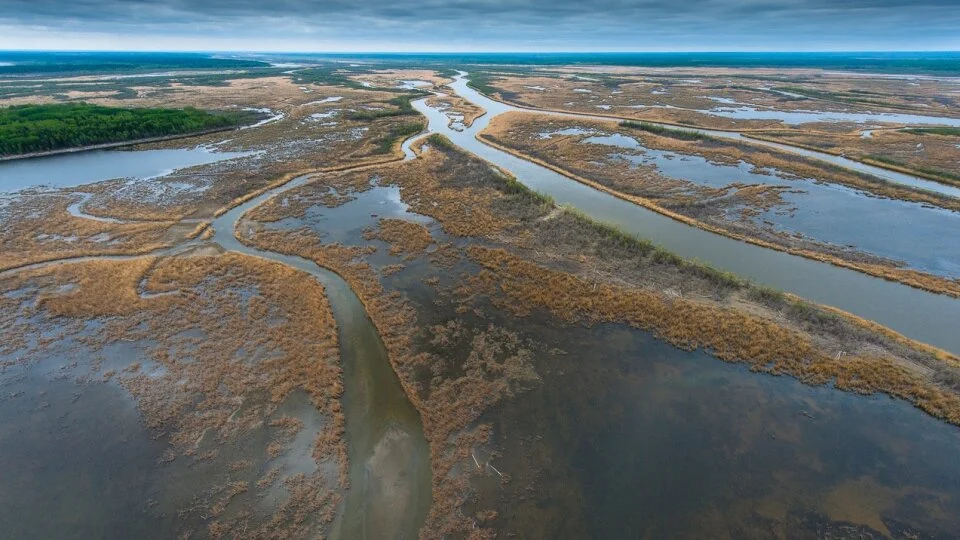If you used water today to brush your teeth, cook or quench your thirst, you should probably thank a wetland. World Wetlands Day, celebrated annually on February 2, is an opportunity to learn about the value and importance of wetlands. This year, it also serves as an opportunity to double down on our efforts to protect these vital natural spaces that are disappearing before our eyes. In a rapidly changing world, the more wetlands we lose, the more valuable the ones that remain.
Wetlands can be Canada's good news story in 2022
Over the past year, headlines about the environment have been bleak. Floods, droughts and fires have hit our fellow Canadians hard. But the impacts of climate change should not make us feel powerless. Wetlands are a formidable force of nature that has our back. In 2022, they can be Canada’s good news story. When you look at the ways in which people and communities are working together to conserve wetlands across the country, the good news flows like…well, water. As nations around the globe prepare to mark World Wetlands Day on February 2, Ducks Unlimited Canada (DUC) is celebrating some important wins here at home that are making life better for wildlife, people and communities.
Saving wetlands a resolution Canada needs to keep
Amid all the heartening and hope-filled ways Canadians have resolved to make 2021 a year of positive change, one in particular holds water: the commitment to saving our wetlands. Leading up to 2021, the Government of Canada promised to make significant investments in our environment-and in the wetlands that underpin its health. Today, this commitment must be among our greatest convictions. Our ability to address the colliding crises of biodiversity loss and climate change depend on it. So does our economic recovery.
Yukon pushed to develop protections for irreplaceable wetlands threatened by mining
An independent panel is urging the Yukon government to develop a wetlands policy to protect unique streams, bogs, fens and peatland from mining because there are no known ways to fully restore these sensitive ecosystems once disturbed. Wetlands filter water, provide habitat to species and sequester carbon but are quickly being lost to development worldwide — an issue drawing attention on World Wetlands Day Feb. 2.
World Wetlands Day focused on improving awareness, protection for Sask. ecosystems
Experts are hoping World Wetlands Day gets people interested in protecting the shrinking ecosystems in Canada’s wetlands. Wetlands, both temporary and permanent, serve as a natural filter for larger bodies of water, replenish renewable water resources and serve as a home to many species. "The wetlands do all these things and it's pretty easy to forget that," said Peter Leavitt, Canada Research Chair. Jeff Olson, managing director at Citizens Environmental Alliance, said it is important to remember all the good these areas do, but to also mourn the ones we have lost.
Back to top Op/Ed: Marking 50 years of wetland conservation and loss
Fifty years ago, nations gathered to create the world’s first global agreement to conserve a habitat. This had long been undervalued, and as a result was rapidly disappearing. Fifty years ago, there was a global call to action to save our wetlands. On February 2, 1971, the Convention on Wetlands of International Importance was adopted in Ramsar, Iran. Often referred to as the Ramsar Convention, its purpose was to stop the worldwide loss of wetlands. Today, 171 countries, including Canada, are parties to the convention. The Ramsar Convention has helped many wetlands. More than 2,400 wetlands around the world have been designated as Ramsar Wetlands of International Importance. Canada has 37 Ramsar sites, including two Nature Conservancy of Canada helps protect in B.C., the Columbia Wetlands and in Creston Valley. World Wetlands Day marks the signing of the Ramsar Convention and is a day to highlight the importance of wetland conservation Despite a global agreement and a special day of recognition, we have not been kind to wetlands over the last half century. Over the past 50-years, over one-third world’s remaining wetlands have been lost. They continue to disappear at a rate faster than forests, and the loss is accelerating.







